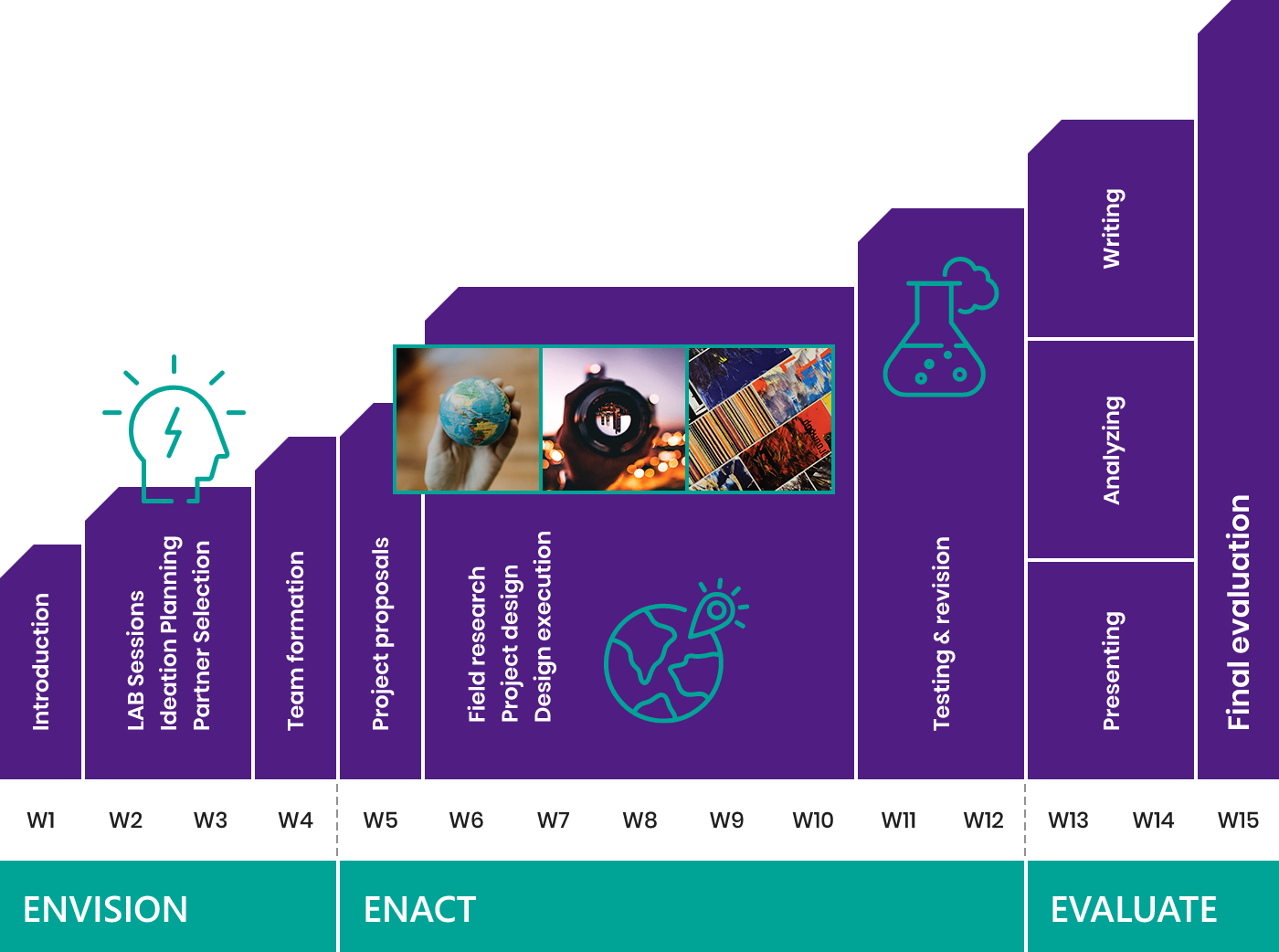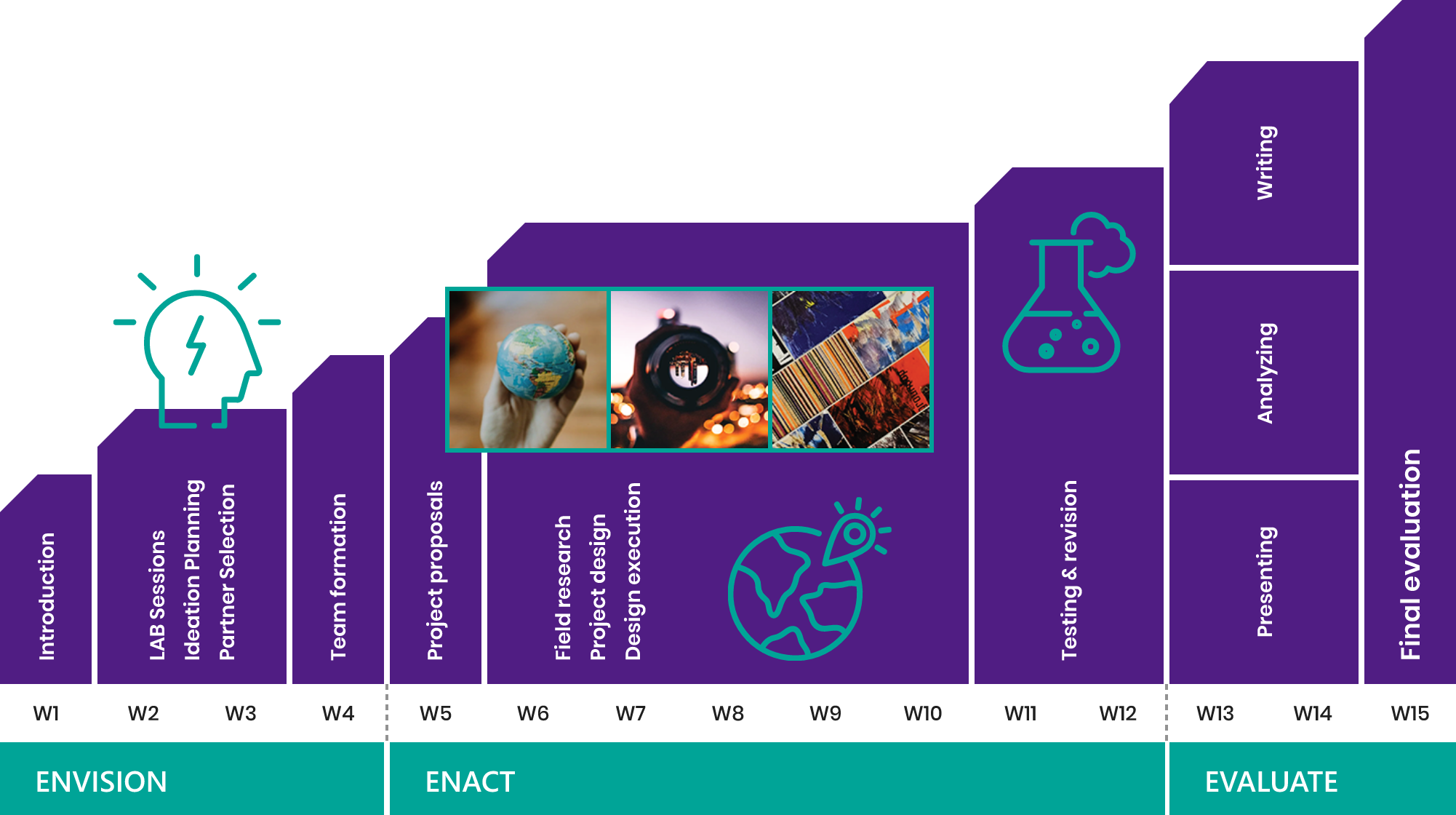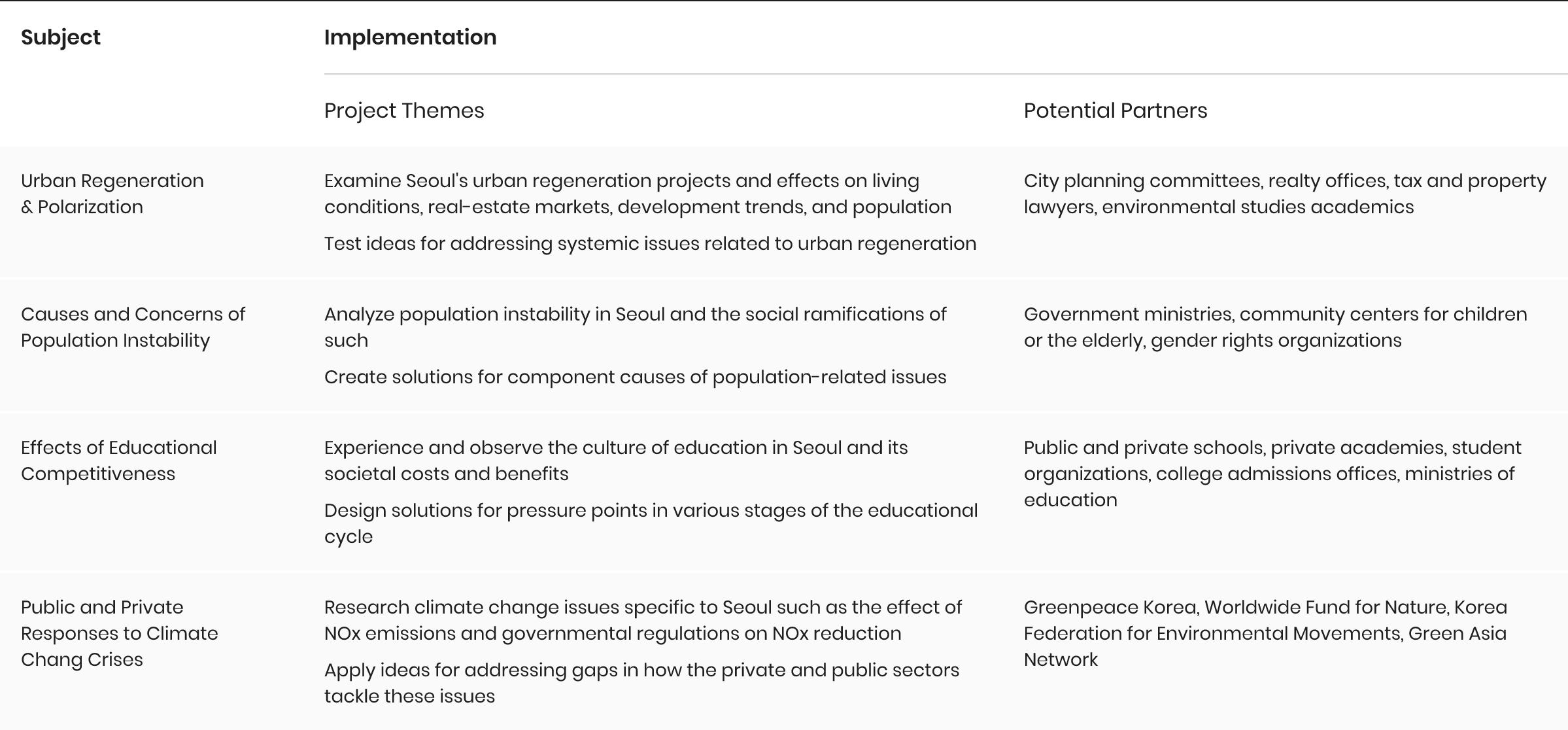- Support
- Global Experience
- Civic Project

Civic
Project
In each Global Rotation city, students will have ample opportunity to experience the city and country for themselves. In doing so, they will no doubt encounter civic issues that draw their interest, whether they are issues of population, environment, infrastructure, accessibility, or any other aspect of lived experience in a major city.
Civic Projects provide students with opportunities to explore these interests more deeply and combine them with their academic learning. Civic Projects are interdisciplinary, problem-based learning modules designed to help students examine country- or region-specific issues while immersing themselves in local culture and society. The semester-long module consists of a faculty-guided team project structured to be adaptable to each team’s specialized interests and passions.
Timeline & Structure
Over the course of each semester, students will form groups to plan and implement a field project that analyzes problems and designs solutions for a civic issue specific to the Global Rotation city they are currently based in. All Civic Projects will require active engagement with local institutions, community organizations, or businesses, as well as constructive teamwork and collaboration between group members.
In addition to applying academic theories to real-world issues and solutions, students will also gain first-hand experience in practical problem-solving and engineering civic solutions. Civic Projects provide valuable opportunities for students to exercise vital skills such as long-term planning, time management, leadership, adaptive trial and error, and proactive self-direction. Students are evaluated through periodic progress reports and a final presentation of the results of their projects to faculty and cohorts.


Civic Project Guidelines
-
Learning
Objectives- 1. Identify a civic issue within the specific context of each city
- 2. Analyze the practical challenges and effects that issue presents to the city
- 3. Apply academic concepts and theories to real- world problems
- 4. Use self-directed learning skills to develop and execute a project plan
- 5. Work collaboratively as a group and cooperate with local partners
- 6. Interpret the issues of each city through comparative global perspectives
- 7. Apply sustainability concepts to design potential solutions
-
Project
Guidelines- 1. Students consult with professors to align Civic Project topics with major studies
- 2. Any topics are acceptable as long as they align with local learning themes and objectives
- 3. Students must work with local communities, governments, NGOs, businesses, or other organizations during the research and design process
- 4. Project implementation assessed through progress reports and presentation of final result
-
Team Activity
Components- 1. Academic research (journals, textbooks, etc.)
- 2. Communication and collaboration (with team members and with partnership organizations)
- 3. Field research (interviews with local consumers, policy makers, administrators, etc.)
- 4. Generation solution ideas (brainstorming, prototyping, engineering, etc.)
- 5. Executing action plans (designing UI, materials, etc.)
- 6. Engaging in field activities (volunteering, PR campaigns, etc.)
Sample Civic Project Topics for Seoul

| Subject | Implementation | |
|---|---|---|
| Project Themes | Potential Partners | |
| Urban Regeneration & Polarization |
Examine Seoul's urban regeneration projects and effects on living conditions, real-estate markets, development trends, and population Test ideas for addressing systemic issues related to urban regeneration |
City planning committees, realty offices, tax and property lawyers environmental studies academics |
| Causes and Concerns of Population Instability |
Analyze population instability in Seoul and the social ramifications of such Create solutions for component causes of population-related issues |
Government ministries, community centers for children or the elderly, gender rights organizations |
| Effects of Educational Competitiveness |
Experience and observe the culture of education in Seoul and its societal costs and benefits Design solutions for pressure points in various stages of the educational cycle |
Public and private schools, private academies, student organizations, college admissions offices, ministries of education |
| Public and Private Responses to Climate Chang Crises |
Research climate change issues specific to Seoul such as the effect of NOx emissions and governmental regulations on NOx reduction Apply ideas for addressing gaps in how the private and public sectors tackle these issues. |
Greenpeace Korea, Worldwide Fund for Nature, Korea Federation for Environmental Movements, Green Asia Network |


